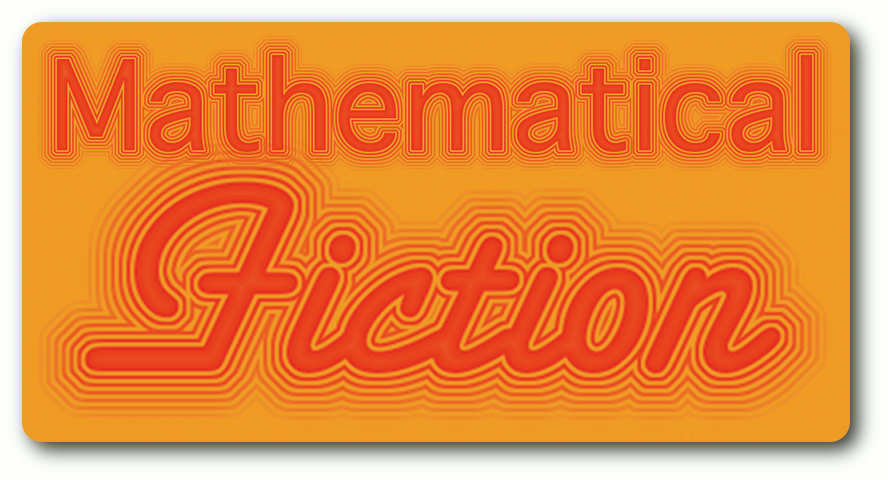| A crew of humans travel to a distant planet to meet the intelligent
lifeform we have discovered there. They turn out to be a race largely
interested in mathematical problems (sounds very reasonable to
me!)...but, not everything goes as planned. Since there is no
violence in this unusually technical science fiction story, the focus
is on the details. Unfortunately, according to "William E. Emba" the author "obviously cribbed from George Gamow['s] `One, Two,
Three, Infinity' not knowing that Gamow got it wrong."
| Contributed by
Anonymous
Note: I think the originally
released Dragonfly is great. Not
its subsiquent non edited version.
The Mathematical Elements were used as
the focus of humans and aliens learning
to communicate with each other. It was
also used to help the reader
understand, just how advanced they
were.
|
| Contributed by
Blair Madore
I have read this work in a a newer form called "Rocheworld" which includes this story and several related stories into a larger novel. I really enjoyed it because of it's emphasis on factual science. Though some of the math references seem wrong, the idea that the first aliens we encounter are large blobs obsessed with pure mathematics and surfing is very entertaining. Certianly the description of how mathematics was used to build a translator makes a lot of sense. I hope this book would go a long ways toward convincing many of the central role of math in the universe.
|
I'm afraid that I cannot say I loved this book as much as some of the others who are quoted above. There are some interesting ideas in this book. The author, having a professional background in such matters, spends a lot of time on the method by which the explorers reach their destination. (He covers everything from propulsion to a medication that slows their aging.) Even more interesting, to me at least, were the parts about the surfing alien blobs and their interest in abstract mathematics. Strangely, it was the human aspect of the story that I thought the author was way "off base" on.
It was difficult for me to believe that these astronauts -- including a millionaire supermodel -- would be so apparently unconcerned about volunteering for a one-way mission to another solar system. Their romantic affairs struck me as immature and uninteresting. The broken English of the Quebecois character does not sound at all French...I kept thinking she was supposed to be Russian because of her "accent"! The portion of the book where they are made to act childish (a side effect of the anti-aging drug) was insipid and ridiculous. They seem to have been as excited and mesmerized by the "performance art" of one of their own crewmembers (she does a dance in the nude where she acts like "tinkerbell the fairy") as they are by the existence of intelligent life on the planet they have sacrificed their lives to explore!
Anyway, here are some mathematical highlights:
- The aliens are mostly interested in abstract mathematics as a form of recreation. However, the "main alien character" has a more applied bent. When we first meet it, it has designed a lens that allows it -- for the first time -- to see the sun and moons of the planet and with some effort eventually works out the astronomical significance.
- The bizarrely shaped double planet is called "Rocheworld", presumably after Edouard Roche whom the book calls a "mathematician". You can read about the relevant math here.
- As others have indicated, it is through the common language of mathematics that the ship's computer develops the ability to communicate with the bloblike whistling aliens.
- The famous equation "e to the pi i equals minus one" is at one point a topic of discussion between the aliens and a human. The human is surprised how much the aliens know about this and begins to feel that she is in over her head.
- She also talks to the aliens about the Pythagorean Theorem and Fermat's Last Theorem, although the aliens are somehow not attracted to the question of FLT (which the book, of course, presents as an open problem even though it has been solved since the time the book was written). The alien feels that the generalization of the Pythagorean Theorem should involve higher powers AND longer sums, not just a raising of the powers. It is therefore frustrated by the problem but eventually proves the conjecture to be true.
- There are fleeting mentions of nonlinearity, Lagrange points, "the seven-color mapping theorem on the hypertorus", and transfinite cardinality.
- Towards the end of the book the characters learn, as if it is a surprise, that mathematics might actually be useful. There is a discussion about the unreasonable effectiveness of mathematics.
Perhaps your "average Joe" on the street might not know that math is more than just a game.
However, I find it implausible that these scientists and engineers who travelled to another solar system would not think of the aliens' abilities with mathematics as being something potentially useful.
|


